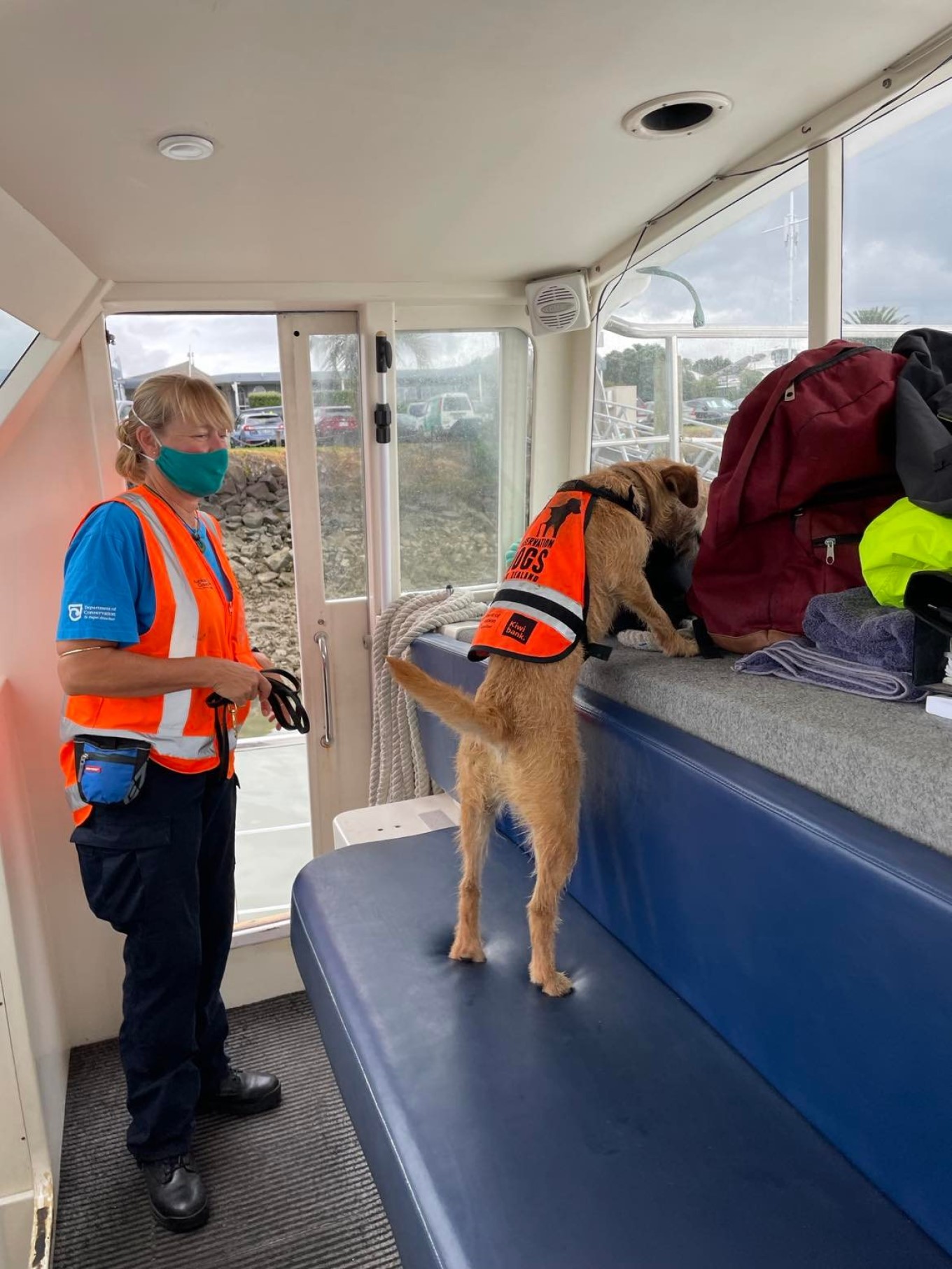At 8.30am, Auckland Council biosecurity adviser Lois Clayton can often be found rolling along the waterfront on her bike pulling a trailer.
Inside is the cutest little dog you’ve ever seen. They’re on their way to Wynyard Wharf to sniff out pests trying to hitch a ride to a Hauraki Gulf island.
Almost every person they pass lights up with a smile. They could come down in a truck, but this is much better. All the way, they’re making people’s mornings. They’re also doing a crucial job and creating opportunities to spread the word about protecting our island wildlife.
Down at the waterfront, cars and trucks are queuing for the Waiheke ferry. Clayton asks: “Do you mind if the dog has a look for a stowaway?”
Hers are just like airport drug dogs, except they are trained to sniff out pests that could threaten native wildlife.
They visit the passenger ferries, too, not so much in the expectation of finding pests, more with the aim of encouraging people into the habit of checking their gear for sneaky stowaways, the same way people are asked to clean their boots to help stop the spread of kauri dieback disease. Here at the vehicle ferries, though, the hunt is on. Last week, they found a rat hiding on a truck axle.
Pests are all they’re after. However, one couple seemed to be under a misapprehension about that. “The dog checked through their car and they were really, really sweating,” Clayton says. There were no skinks. She told them they were all good. “And you could just see the relief on their faces.”

Bark control
Across town at 9.30am, Auckland Council's barking advisers are taking on dog-related noise complaints.
When the barking dog next door is driving you up the wall and you can’t take another minute of it, trained specialists are ready for your call.
Auckland Council senior barking adviser Debbie Lawrie leads a team of four dealing solely with complaints about such canine noise.
They favour graduated enforcement. It starts with a chat to provide information and advice. In a typical month, the council receives about 450 barking complaints. Of those dogs being complained about, 50 or so owners will get a formal warning and, of those, 10 to 15 will be issued a noise enforcement abatement notice.
“Boredom is one of the main things that makes a dog bark – and anxiety at being left alone,” Lawrie says.
“Those two things are what cause probably 90 per cent of the issues.”
Most of them are easy fixes: “Changing what the dog can see or the time they are fed, more exercise, little things like that which people may not be aware of.” She had one instance where she worked her way through the checklist over the phone.
She asked: “Can your dog see over the fence?” No, the householder told her. His fence was six feet tall and solid wood. She made a visit and found the answer. “The dog is standing on your barbecue and barking over the fence. Move the barbecue.”


